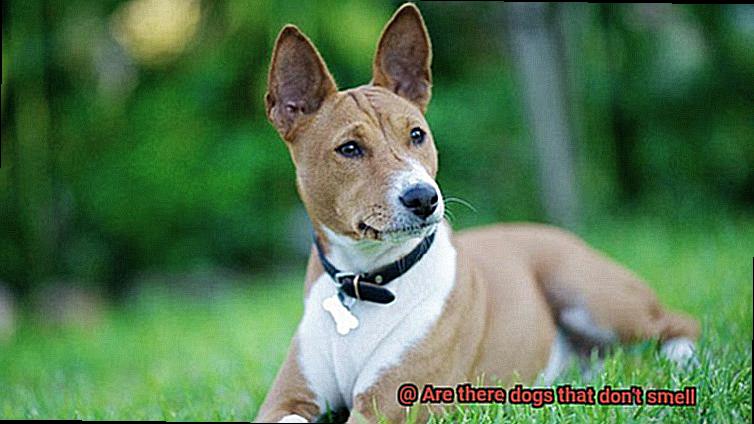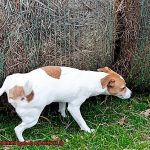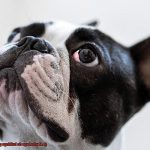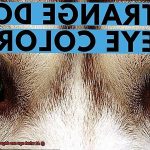Are there dogs that don’t smell?
Imagine a four-legged friend who greets you with boundless love, wagging tail, and not a hint of that dreaded doggy odor. Sounds too good to be true, right? Well, hold onto your hats because I’m about to unveil some exciting news – dogs that don’t smell are not just a myth. While it’s true that no dog is completely odorless, there are certain breeds renowned for their minimal scent-producing abilities.
In this blog post, we’ll dive headfirst into the intriguing world of low-odor dogs. Whether you’re plagued by allergies, crave a fresh-smelling home, or simply want to know more about these unique breeds, join me on this aromatic adventure as we uncover the truth behind dogs that don’t smell.
Research has revealed that some dog breeds have a natural inclination towards producing fewer odors than others. Take the Bichon Frise, Poodle, and Basenji breeds, for example – they often top the list when it comes to minimal doggy smells. These hypoallergenic wonders produce fewer allergens that trigger pet-related allergies and boast coats that require regular grooming to prevent any lingering odors from taking hold.
But here’s the thing – even these low-odor breeds require consistent care and maintenance to keep any potential smells at bay. Regular baths, ear cleanings, tooth brushing sessions, and diligent housekeeping are all crucial in maintaining overall freshness.
Now, it’s important to remember that while certain breeds tend to be less odorous than others, individual dogs within those breeds can still vary in their scent levels. Factors like diet choices, health conditions, and environmental influences can all play a role in determining how fragrant our furry friends become. That’s why thorough research and personal interactions with potential pups are key before making any decisions.
So here’s the bottom line: while dogs that don’t smell entirely are a fantasy, breeds with minimal odor production do exist. For those with sensitivities or an aversion to doggy smells, owning one of these breeds can be a game-changer. Just remember, responsible dog ownership and consistent maintenance routines are essential, regardless of the breed you choose.
So whether you’re considering a Poodle, Bichon Frise, or any other low-odor breed, rest assured that there are options out there for those seeking a delightful companion without the overwhelming scent. Get ready to embark
Are there dogs that don’t smell
Contents
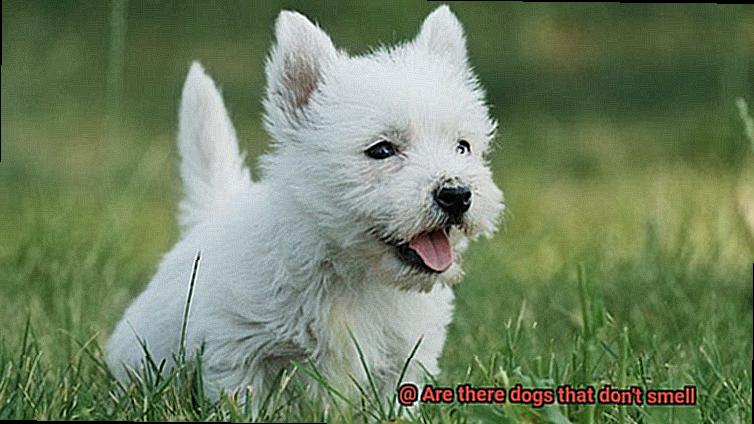
As dog owners, we love our furry friends unconditionally. However, it’s no secret that dogs can sometimes come with a distinctive odor. But fear not. There are certain dog breeds that are known for having less noticeable or less offensive smells compared to others. In this article, we will explore the reasons behind these differences and highlight some low-odor breeds that might be perfect for those seeking a pleasant-smelling companion.
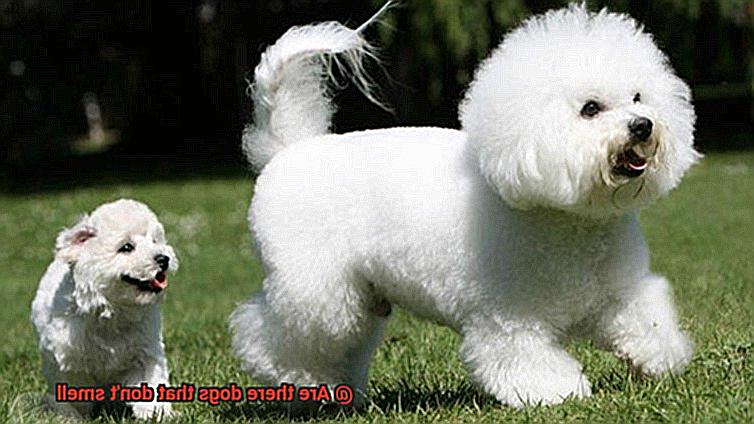
Coat Type and Texture:
One of the main factors that affect a dog’s smell is their coat type. Breeds with shorter coats, such as the Basenji or the Whippet, have minimal odor because their fur doesn’t trap as much dirt and bacteria. Similarly, dogs with curly or wiry coats like the Poodle or the Bichon Frise tend to have less noticeable smells due to the texture of their fur, which helps prevent oils and dirt from accumulating.
Natural Oil Production:
Some dog breeds naturally produce fewer oils on their skin, resulting in reduced odor. The Chinese Crested Dog and the Mexican Hairless Dog are examples of breeds with lower oil production, making them ideal for those who prefer a less smelly pet.
Grooming Practices:
Proper grooming plays a significant role in managing a dog’s smell. Regular bath time using mild shampoos formulated for dogs can keep their coat clean and fresh. However, it’s crucial not to over-bathe dogs as it can strip away essential oils from their skin, leading to dryness and potentially causing more odor.
Oral Hygiene:
Maintaining good oral hygiene is essential in managing a dog’s smell. Regular brushing of their teeth and providing dental chews or toys can help prevent bad breath, a significant contributor to overall odor.
Diet:
Believe it or not, diet can influence a dog’s body odor. Feeding them high-quality, balanced meals appropriate for their breed and size can minimize any unpleasant smells coming from their digestion process.
Understanding the Natural Odor of Dogs
We all know that our furry friends have a unique scent that is just as distinctive as their adorable snorts and snuffles. But have you ever wondered what factors contribute to their natural odor and how you can keep it in check? Well, you’re in luck because we’re here to sniff out the answers.
First things first, let’s talk about what makes our Frenchies smell the way they do. The natural odor of dogs is a symphony of different elements, including their skin, coat, and sweat gland secretions. Just like us humans, dogs have sebaceous glands in their skin that produce oils to keep their coats healthy and moisturized. These oils can add to their natural smell, especially if they haven’t had a bath or grooming session in a while.
Now, let’s dig into the specific factors that can influence your Frenchie’s signature scent. Breed, diet, hygiene, and overall health all play a role in how your pooch smells. Some dogs may naturally have a stronger odor due to their genetics or certain health conditions. Additionally, the food they eat can impact their breath and body odor. So if your Frenchie’s breath could knock over a garbage can, it might be time to reassess their diet.
But fear not. There are ways to manage and minimize your French Bulldog’s natural odor. Good hygiene practices are key. Regular bathing with gentle dog-specific shampoos and proper grooming techniques can help remove excess oils and dirt from their coat, reducing that doggy smell. However, be careful not to overdo it with the baths because too much washing can strip away their natural oils and lead to dryness or irritation. It’s all about finding that sweet spot between cleanliness and keeping their skin healthy.
Now, you might have heard that certain breeds like Basenjis or Bichon Frises are known for being less smelly, but let’s not forget that all dogs have a natural scent, even if it’s less pronounced in some breeds. Embrace your Frenchie’s unique aroma.
It’s also important to remember that health issues can contribute to an unpleasant odor in dogs. Regular vet check-ups are crucial for identifying and addressing any underlying conditions that might be causing abnormal smells.
Factors that Affect a Dog’s Scent
French bulldogs are known for their adorable wrinkled faces and affectionate nature. However, like all dogs, they have their own unique scent. Understanding the factors that affect a French bulldog’s scent can help owners better manage any potential odor concerns and keep their furry friends smelling fresh and clean.
Breed:
French bulldogs have a distinct body odor that is different from other breeds. Their skin folds and short coat can trap moisture, dirt, and bacteria, leading to a stronger smell compared to dogs with longer coats. It’s important for French bulldog owners to be aware of this breed characteristic and take proactive measures to maintain their dog’s hygiene.
Diet:
Feeding your French bulldog a balanced and high-quality diet can influence their body odor. Certain foods, such as fish-based diets or those containing omega-3 fatty acids, can contribute to a stronger-smelling coat. It’s essential to provide your French bulldog with a diet that meets their nutritional needs while considering the impact it may have on their scent.
Hygiene:
Proper grooming and hygiene practices are crucial for managing a French bulldog’s scent. Regular bathing with dog-specific shampoos and conditioners helps remove dirt, oils, and odors from their coat. Pay special attention to cleaning the folds on their face and body to prevent bacteria buildup. Brushing their coat regularly helps distribute natural oils and remove dead skin cells, reducing any potential odors.
Health:
A French bulldog’s overall health can impact their scent. Certain medical conditions or infections can cause an increase in body odor. Skin conditions like yeast or bacterial infections can produce unpleasant smells. It’s important to monitor your French bulldog’s health and seek veterinary attention if you notice any changes in their scent.
Environmental Factors:
The environment in which your French bulldog lives can also affect their scent. Dogs that spend a lot of time outdoors or in areas with strong odors, such as farms or areas with heavy vegetation, may pick up more smells. Additionally, exposure to smoke, chemicals, or pollutants can impact their scent. Taking precautions to minimize exposure to strong odors can help manage your French bulldog’s scent.
Breeds with Minimal Odor
If you’re a dog owner, you know that our furry friends can sometimes come with a not-so-pleasant odor. However, some dog breeds are known for having minimal odor compared to others. So, if you’re someone who is sensitive to smell or simply want a dog that won’t leave your house smelling like a kennel, these breeds might be the perfect fit for you.
- Basenji: The “Barkless Dog” is not only known for its unique vocalizations but also for its lack of odor. This breed has a very short coat and is a fastidious groomer, which helps keep them clean and odor-free.
- Bichon Frise: These small, fluffy dogs have hair instead of fur, which reduces the amount of dander and oils that contribute to odor. Regular grooming is necessary to maintain their cleanliness and prevent any potential odors.
- Portuguese Water Dog: This hypoallergenic breed tends to have minimal odor due to its curly, non-shedding coat. The curls help trap any odors, making them a good choice for those looking for a dog with minimal smell.
- Yorkshire Terrier: Despite their long, silky coat, Yorkshire Terriers typically have minimal odor. Regular grooming is essential to prevent matting and odors, but overall they tend to have less of a doggy smell compared to other breeds.
- Poodle: Another hypoallergenic breed, Poodles are known for their minimal odor. Their curly coat helps trap any odors, making them an excellent choice for those who are sensitive to smell.
- Shih Tzu: With their long, flowing coat, Shih Tzus generally have minimal odor. Regular grooming is crucial to prevent matting and odors, but with proper care, they can be relatively odor-free.
It’s important to note that while these breeds may have minimal odor compared to others, all dogs have some level of natural scent. Regular grooming, including bathing and brushing, is essential to keep any dog smelling fresh and clean. Additionally, it’s crucial to consider that individual dogs within a breed may differ in their scent levels. Factors such as diet, health conditions, and hygiene practices can also influence a dog’s odor.
So, if you’re looking for a breed with minimal odor, consider the Basenji, Bichon Frise, Portuguese Water Dog, Yorkshire Terrier, Poodle, or Shih Tzu. Remember that proper grooming and hygiene practices are still necessary to maintain a fresh and odor-free environment for both your dog and yourself.
Grooming and Hygiene Practices for Reduced Odor
French Bulldogs are beloved for their adorable appearance and affectionate nature. However, their compact bodies and unique facial structure make them prone to certain grooming challenges, including odor. In this authoritative guide, we will explore effective grooming and hygiene practices that can help keep your French Bulldog smelling fresh and clean.
Regular Bathing:
Regular bathing is crucial for reducing odor in French Bulldogs. Use a mild dog shampoo formulated specifically for their skin and coat type. Be sure to rinse thoroughly to remove all shampoo residue, as leftover soap can contribute to an unpleasant smell.
Brushing:
Brushing your French Bulldog’s coat not only keeps it clean but also helps distribute natural oils evenly, preventing odor buildup. Use a brush suitable for their coat type and brush in the direction of hair growth.
Dental Care:
Bad breath can be a significant source of odor in dogs, including French Bulldogs. Establish a regular dental care routine by brushing your dog’s teeth with a dog-friendly toothpaste. This helps maintain their oral hygiene and reduces foul odors.
Ear Cleaning:
French Bulldogs are prone to ear infections due to their floppy ears. Clean their ears regularly with a veterinarian-recommended ear cleaner to prevent wax and debris buildup that may contribute to unpleasant smells.
Anal Gland Expression:
Some French Bulldogs may experience issues with their anal glands, leading to a strong odor. Regularly express the anal glands or have them expressed by a professional groomer or veterinarian to alleviate this issue.
Skin and Coat Care:
A healthy skin and coat are essential for minimizing odor in French Bulldogs. Ensure they receive proper nutrition through a balanced diet and provide any supplements recommended by your veterinarian. Regularly check for skin issues that may contribute to unpleasant smells and seek appropriate treatment.
Regular Grooming Sessions:
Apart from bathing and brushing, scheduling regular grooming sessions with a professional groomer can help maintain your French Bulldog’s hygiene and minimize odor. Groomers can trim excess hair, clean hard-to-reach areas, and provide specialized treatments targeting odor-causing bacteria.
Clean Bedding and Living Areas:
Regularly washing your French Bulldog’s bedding and keeping their living areas clean and odor-free also contribute to reducing overall smells. Use pet-friendly detergents and disinfectants to effectively eliminate odors.
Diet and Nutrition for Reducing Body Odor
Just like humans, what a dog eats can greatly impact their body odor. Feeding a high-quality, balanced diet is crucial for minimizing body odor in French Bulldogs. But what exactly should you be feeding them? Let’s dive into the world of diet and nutrition for reducing body odor in our furry friends.
Choosing the Right Dog Food
When it comes to selecting dog food, opt for a brand that is made from real meat and doesn’t contain any artificial additives or fillers. Avoid foods that are high in carbohydrates, as they can contribute to an unpleasant smell. Look for a high-quality dog food that provides all the necessary nutrients your Frenchie needs.
Beneficial Ingredients
Incorporating certain ingredients into your Frenchie’s diet can also help reduce body odor. Probiotics can promote a healthy gut and digestion, which can have a positive effect on body odor. Consider adding probiotic supplements or feeding them probiotic-rich foods like yogurt.
Fish oil supplements are another great addition to their diet. They contain omega-3 fatty acids that can improve the health of their skin and coat, ultimately reducing body odor.
Hydration Matters
Keeping your Frenchie properly hydrated is essential for reducing body odor. Ensure they have access to fresh water at all times. Proper hydration helps flush out toxins from their system, which can have a positive impact on their body odor.
Consult with Professionals
It’s important to note that some French Bulldogs may have specific dietary needs or sensitivities that contribute to their body odor. In such cases, it is recommended to consult with a veterinarian or a canine nutritionist to determine the best diet and nutrition plan for your individual Frenchie.
Good Hygiene Practices
In addition to diet and nutrition, maintaining proper hygiene and grooming practices is essential for reducing body odor in French Bulldogs. Regular bathing with suitable dog shampoo and brushing their coat can help remove dirt and bacteria that may contribute to unpleasant smells.
Variations in Individual Dogs’ Scents
Genetics: The Nose Knows
Just as genetics determine our physical traits, they also play a role in a dog’s scent. Each breed has its own characteristic odor, influenced by their genetic makeup. For example, French Bulldogs are known for their mild yet distinct scent, which is influenced by their breed’s genetic predisposition.
Health Matters: Sniffing Out Medical Conditions
A dog’s scent can be influenced by their overall health. Medical conditions such as skin infections, ear infections, and dental issues can contribute to a stronger odor. Regular veterinary check-ups are essential for maintaining your furry friend’s health and keeping any unwanted odors at bay.
Diet: You Are What You Eat
Just like with humans, a dog’s diet can impact their body odor. Certain ingredients or food allergies can cause dogs to have a stronger smell. Feeding your French Bulldog a balanced and appropriate diet, incorporating beneficial ingredients like probiotics and fish oil, can help reduce any unwanted odors.
Grooming Habits: A Fresh Scent is a Happy Scent
Regular grooming practices are essential for managing a dog’s odor. Bathing and brushing help remove dirt, debris, and excess oils from their coat, resulting in a fresher smell. However, it’s important not to overdo it – too much bathing can strip their natural oils and lead to dryness and potential skin issues.
Embrace Their Unique Scent: Respect and Understanding
It’s important to remember that every dog has their own individual scent, which is part of their identity and natural behavior. While some breeds may naturally have less noticeable scents, it’s crucial to approach this topic with respect and understanding for the natural variations among different dogs.
bN9iMLG4qmg” >
Conclusion
In conclusion, it is safe to say that there are indeed dogs that don’t emit unpleasant odors.
These special canines possess a unique combination of genetics, grooming habits, and overall health that keeps them smelling fresh and clean. Whether you’re searching for a hypoallergenic breed or simply want a dog with minimal odor, options are available.
Additionally, proper hygiene practices such as regular bathing, brushing, and dental care can significantly reduce any potential doggy odor.
